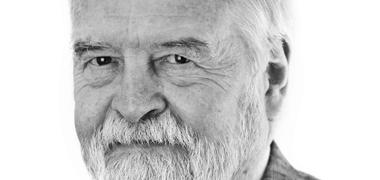We are celebrating the 10-year anniversary of Debats d’Educació by giving the educational community the opportunity to air its views

Professor Emeritus, University of Cambridge
Director of the Leadership for Learning: the Cambridge Network and projects director of the Centre for Commonwealth Education.
The three things I’ve learned
Learning how to learn in a changing world
The pervasive rhetoric of ‘outcomes’ suggests an endpoint of learning on exit from school whereas the challenges of authentic learning often only starts then, and there is great deal of unlearning to do. How to learn for yourself, with enduring effect, aggressive curiosity and healthy scepticism will increasingly require an ability to build bridges between in-school and out-of-school learning, in and beyond the confines of the classroom. It means equipping young people for a society in which ‘work’ is assuming new and unpredictable forms but increasingly reliant on team work, initiative and a sense of ‘agency’.
Flying below the policy radar
Teaching is a subversive activity in a number of senses – as intellectually and emotionally critical of inert ideas, as resistant to authority dictat, as courageous in standing up for what is right and in young people’s interest – as we learn to measure what we value rather than valuing what we can easily measure. This implies a willingness and ability to identify and share criteria of what makes for high quality environments for student learning, professional and organisational learning in a world of change.
Good leaders are active and exemplary learners
Leadership is generally defined in terms of individuals at the apex of organisations, heroic figures who have attained their status and hold on to it. In a climate of continuing change the first imperative is not only to be a good learner but to exemplify a constant quest to learn from others - from teachers, from children, from parents. It means sharing and ‘distributing’ leadership and learning how to follow as well as learning how to lead. This implies a willingness to explore learning sites beyond the school, in the community and in the virtual world and to learn from young people who often are more skilled than their teachers or principals.















 The texts published on this website are, unless otherwise indicated, covered by the Creative Commons Spain Attribution 3.0 licence. You may copy, distribute, transmit and adapt the work, provided you attribute it (authorship, journal name, publisher) in the manner specified by the author(s) or licensor(s). The full text of the licence can be consulted here:
The texts published on this website are, unless otherwise indicated, covered by the Creative Commons Spain Attribution 3.0 licence. You may copy, distribute, transmit and adapt the work, provided you attribute it (authorship, journal name, publisher) in the manner specified by the author(s) or licensor(s). The full text of the licence can be consulted here: